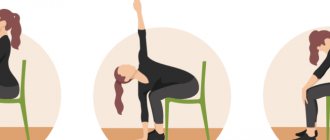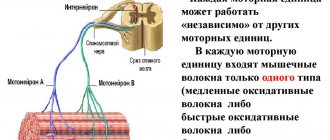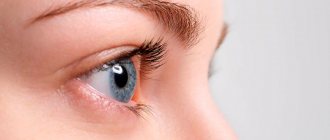Trembling inside the body can occur for various reasons. Doctors at the Yusupov Hospital conduct a comprehensive examination of patients using the latest equipment from leading manufacturers in Europe, Japan, and the USA. After receiving the results of instrumental and laboratory studies, at a meeting of the expert council with the participation of candidates and doctors of medical sciences, doctors of the highest category, a collegial decision is made on further tactics for treating patients.
Body tremors can be a natural reaction to stress. With strong anxiety, the body increases the production of stress hormones - adrenaline and cortisol. They become the source of energy necessary to eliminate the situation that has arisen. An excess of completely unused internal energy causes tension and trembling within the body. Trembling in the body is observed in people who are trying to hide their emotions. In this case, unrealized hormones remain inside the body and cause overstrain, manifested by trembling of individual muscle fibers or muscle groups.
The cause of internal body tremors may be autonomic dysfunction. An imbalance between the sympathetic and parasympathetic parts of the autonomic nervous system can occur during chronic stress, depression, after suffering a severe infectious disease, or as a result of chronic somatic pathology. The cause of trembling inside the body can be pathological processes in the cerebellum, thalamus, hypothalamus, subcortex or cerebral cortex. Trembling in the body is one of the signs of complications of diabetes mellitus.
Under stress
Acute stress occurs due to a one-time exposure to a strong traumatic factor. It is accompanied by trembling in the body, psycho-emotional agitation or a depressive state. Chronic stress develops with prolonged exposure to unfavorable factors:
- interpersonal conflicts;
- tense family relationships;
- monotonous and unloved work;
- lack of vital interests;
- lack of personal communication;
- long absence of vacation.
Patients in a state of chronic stress are unsure of themselves and others. They experience nervous disorders and panic attacks, during which trembling occurs inside the body, increased sweating, and increased body temperature. Emotional lability, vulnerability, and touchiness develop.
To eliminate the symptoms of stress and tremors within the body, neurologists at the Yusupov Hospital prescribe tonics and sedatives, herbal remedies, and vitamin and mineral complexes to patients. In the rehabilitation clinic, physiotherapeutic procedures are carried out to balance the processes of excitation and inhibition in the cerebral cortex. Psychotherapists use innovative psychological techniques.
Psychotherapy for feelings of trembling and vibrations in the body
Most often, people begin to resort to the help of psychologists and psychotherapy. Psychotherapy explains to a person the true origin of these sensations. This understanding often temporarily reduces the urgency of the problem and symptoms decrease. However, even if you realize that all these problems appear only in your mind and they have nothing to do with your physical health, the disease itself will not go away. It will dull temporarily, but with any, even minor stress or physical activity, it will begin to return.
How to properly deal with the feeling of trembling and vibration in the body
In order to reliably overcome the sensations of trembling or vibrations in the body, it is necessary to understand that under the influence of external unfavorable influences on the nervous system, a failure of the metabolic processes of the brain has occurred. In order to restore these processes, special drugs are required.
We use special complex therapy, which includes neurometabolic therapy, which restores biological processes, and special medical psychotherapy, which helps the nervous system restore normal mental reactions.
The set of measures also includes an individual approach to each person, as this is associated with differences not only in the body’s metabolic processes, but also in differences in the pattern of mental reactions. Each person requires the development of an individual therapeutic plan.
For autonomic dysfunction
Autonomic dysfunction is a complex of clinical manifestations of a functional disorder of the autonomic nervous system, which entails disruption of the functioning of internal organs. This is a specific syndrome that can accompany any somatic pathology.
Violation of nervous regulation on the part of the autonomic nervous system can be provoked by one of the following factors:
- burdened heredity;
- hormonal dysfunction;
- diseases of the endocrine system;
- organic brain lesions;
- unfavorable external factors leading to constant psycho-emotional stress.
Patients with autonomic dysfunction complain of rapid heartbeat, periodic feeling of a sinking heart, pain in the heart area. They are worried about rapid breathing, difficulty or inability to take a deep breath or exhale, a feeling of lack of air, and causeless attacks of shortness of breath. There are fluctuations in blood pressure, a feeling of coldness in the extremities, and periodic fluctuations in body temperature. The functioning of the digestive organs is disrupted - abdominal pain, constipation alternating with diarrhea, nausea, vomiting, and belching occur.
Patients note general weakness, decreased performance, and lethargy. They experience excessive irritability, impaired sleep quality, frequent dizziness, a constant feeling of anxiety, and periodic trembling within the body. Diagnosis of autonomic nervous system dysfunction is often difficult.
At the Yusupov Hospital, doctors conduct a comprehensive examination, including registration of an electrocardiogram, rheovasography, rheoencephalography, computer and magnetic resonance imaging. Patients in the neurology clinic are advised by cardiologists, endocrinologists, and gastroenterologists.
To treat autonomic dysfunction, neurologists use medication to relieve acute attacks. Patients are prescribed herbal medicines, physiotherapeutic procedures that improve sleep quality, diet therapy and physical therapy. Psychologists use innovative psychotherapeutic techniques.
What to do if muscles twitch on their own
If this problem occurs, first of all, it is worth analyzing the previous few days, if such twitching is of a one-time nature. If a few days before the onset of such a symptom there was severe stress, nervous tension, or a psycho-emotional state, then you need to rest well, do breathing exercises, and such twitching will disappear on its own.
If there are chronic diseases, such twitching may be associated with their exacerbations or the general course of the disease. In this case, it is necessary to contact, first of all, a therapist, who will identify a specialist who is competent to answer the question of why twitching occurs and how to eliminate it.
After consulting a therapist, the cause of twitching can be determined as vitamin deficiency, namely, insufficient levels of potassium and iron in the blood. In this case, the most effective treatment will be vitamin therapy and taking special medications.
If there is a constant or prolonged twitching of a muscle, you should definitely examine the vascular system: do an electro- or tomographic study of the brain, which will give answers to the questions: what is it - a pinched nerve or insufficient blood circulation to the brain, which in turn can cause involuntary twitching muscles of various parts of the body.
If twitching of the muscles of the arms and legs occurs after prolonged strength exercises, first of all, you need to eliminate physical activity and give the muscles a rest. Twitching of this type, as a rule, goes away on its own within a few days and does not recur.
For Parkinson's disease
Parkinson's disease is a chronic, steadily progressive degenerative disease of the central nervous system. Neurologists suggest that the pathological process develops under the influence of age-related, genetic and environmental factors. In Parkinson's disease, there is a deficiency in the production of dopamine, an excess of the neurotransmitter acetylcholine and the excitatory amino acid glutamate, as well as insufficient production of serotonin and norepinephrine.
Patients experience the following symptoms of the disease:
- hypokinesia (decreased motor activity);
- rest tremor (shaking inside the body);
- rigidity (plastic increase in muscle tone, increasing during the study);
- postural instability (characterized by staggering when walking, frequent falls).
Tremor is a regular, rhythmic, involuntary trembling of the limbs, head, facial muscles, tongue, and lower jaw. It is more pronounced at rest and decreases with active movements. In patients suffering from Parkinsonism, tremors begin in the distal part of one arm. As the disease progresses, it spreads to the opposite arm and lower extremities. The movements of the first, second and other fingers of the hand are multidirectional. They look like rolling pills or counting coins. Sometimes with Parkinson's disease there is a shaking of the head like “yes-yes” or “no-no”; patients’ eyelids, tongue, and lower jaw tremble. The tremor increases with excitement and practically disappears during sleep.
With Parkinson's disease, patients develop depressive states, cognitive and psychotic disorders. The disease is also characterized by autonomic disorders: decreased blood pressure with changes in body position, constipation, seborrhea, urination disorders, drooling, pain syndromes.
Neurologists at the Yusupov Hospital take a differentiated approach to the treatment of each patient. If Parkinson's disease manifests itself in middle age or is at the initial stage of development, conservative drug treatment is prescribed:
- drugs with an antioxidant effect (monoamine oxidase (MAO) type B inhibitors, tocopherol, glutathione, thioctic acid, deferoxamine);
- DA receptor agonists (ADAR);
- dopamine transport inhibitors.
In severe forms and late stages of Parkinson's disease, neurosurgical treatment is carried out in partner clinics.
Why do spontaneous leg tremors occur during sleep?
As you know, brain activity does not stop during sleep. Spontaneous muscle twitching during sleep even received a scientific name - Simmonds' nocturnal myoclonus. Such shudders do not pose any danger to human health; they are directly related to brain activity during sleep. If involuntary shaking of the legs leads to awakening, then we may be talking about Okbom's restless legs syndrome. The main reason why these syndromes arise is neuroses and improper functioning of the subcortical part of the brain. In order to determine what causes such twitching, it is necessary to study the functioning of the blood vessels, as well as the psychological state of the patient. After identifying the cause, we can talk about prescribing treatment. This may include:
– taking sedative and epileptic drugs;
– rest and lack of psychological stress may be indicated;
– massage and muscle relaxation;
– following a diet and taking vitamins.
Essential tremor
Essential tremor is a serious disease of the nervous system that manifests itself as trembling inside the body. Minor nodding movements of the head are present both in a state of complete relaxation and under light loads. During the initial examination, neurologists also detect tongue tremor. Patients may experience increased muscle tone and a change in voice timbre. They feel a vibration that is not associated with excitement.
Neurologists at the Yusupov Hospital perform computer or magnetic resonance imaging for patients with essential tremor. Depending on the results of the examination, drug therapy or surgical interventions are performed. Patients are prescribed beta-adrenergic blockers, sodium channel blockers, benzodiazepines and mediators of inhibitory processes in the central nervous system. As the symptoms of the disease progress, neurosurgeons at partner clinics perform surgical interventions: destruction of the ventrointermediate nuclei of the thalamus or hardware stimulation of the deep areas of the brain through the introduction of electrodes controlled by an implanted device.
If there is trembling inside the body, call the Yusupov Hospital. The clinic’s doctors will use modern diagnostic methods to determine the cause of your condition and provide comprehensive treatment.
Why does the shoulder muscle twitch?
Spontaneous twitching of the muscles of the shoulder joint can be caused by physical activity. This phenomenon is usually observed in athletes or people whose profession is related to loading and unloading. If the twitching is constant, then it may be due to a lack of potassium in the body. In this case, after consulting a doctor, drug treatment, including vitamin therapy, will be prescribed. In addition, twitching of the left shoulder may be associated with heart disease, so if such a symptom occurs, it is recommended to consult a physician or cardiologist.
How to get rid of the throbbing sensation
The subjective sensation of pulsation, which arose due to high physical activity, goes away on its own after a short rest.
If the pulsation occurs due to strong anxiety or during a panic attack, sedatives based on herbal raw materials - Persen, Negrustin, Tanakan - will help get rid of it. Among the products from other groups, Noofen and Adaptol are suitable. A healthy lifestyle with sufficient sleep, an optimal work and rest schedule, and the absence of emotional and physical overload is recommended.
Gasanova Sabina Pavlovna








